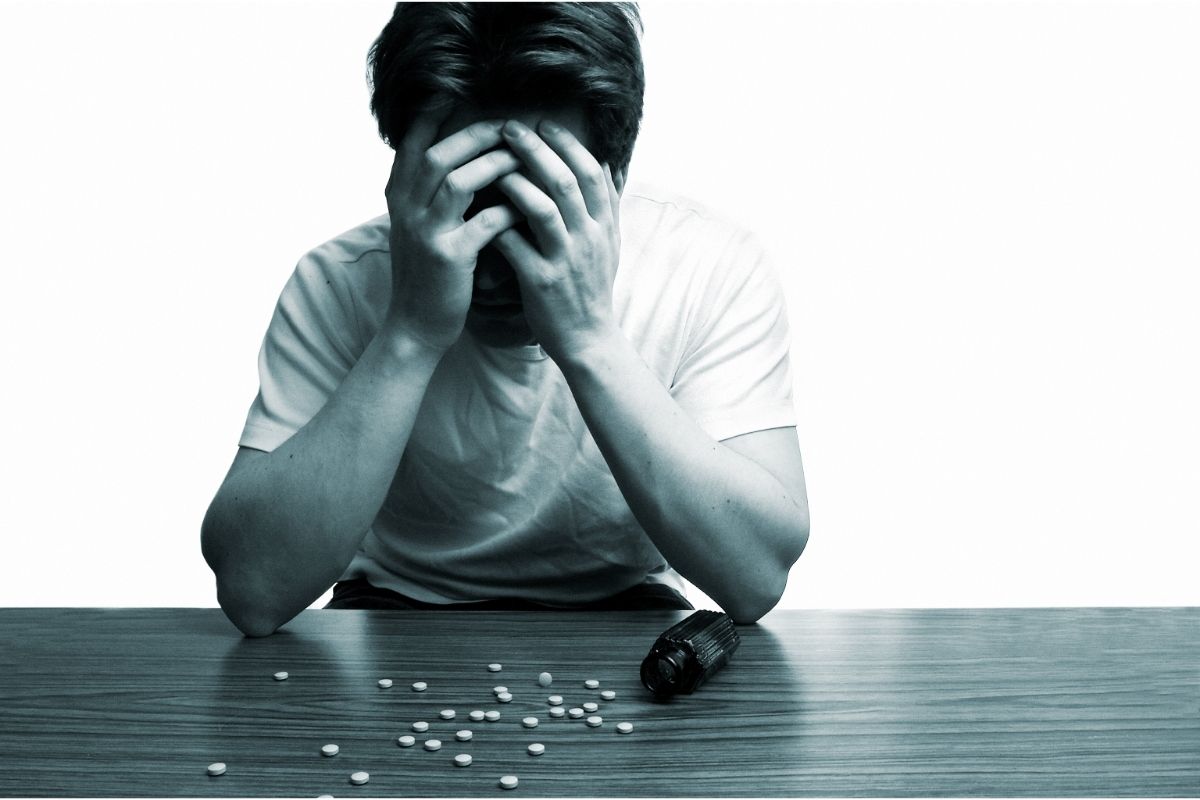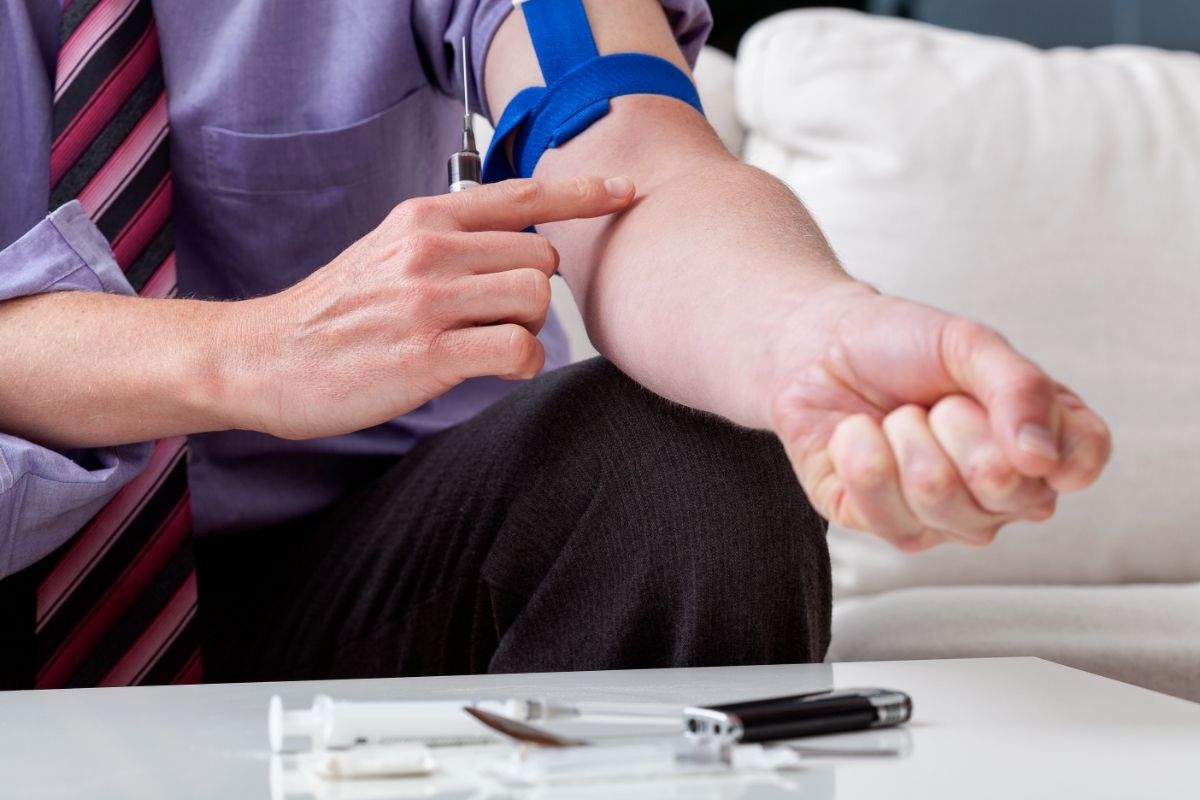Anxiety disorders are common mental health problems that affect millions of Americans.
They include panic disorder, social phobia, generalized anxiety disorder, obsessive-compulsive disorder (OCD), post-traumatic stress disorder (PTSD), and specific phobias.

Anxiety disorders often go untreated because they don’t always show symptoms until they become severe or chronic.
There are several types of addictions. Some are considered harmful, such as alcohol and drugs, whereas others are considered normal, such as caffeine and sugar.
The latter type of addiction is called behavioral addiction. Behavioral addictions are characterized by their ability to hijack our brain circuits and interfere with our decision-making processes.
There have been many studies looking at the connection between anxiety and depression. Many often wonder where or not addiction can cause anxiety.
Well, in this article we are going to look at anxiety and addictions, specifically whether addiction can spur on anxiety.
What Is Anxiety?
Anxiety is a feeling of uneasiness, worry, fear, nervousness, apprehension, dread, tension, agitation, and sometimes even terror. It is an emotion that may be experienced in response to real or imagined events.
The most common form of anxiety is generalized anxiety disorder (GAD). GAD is characterized by excessive worrying about everyday things like work, money, family, health, and relationships.
People who suffer from GAD tend to feel tense, restless, irritable, and unable to relax.
They also experience physical symptoms including headaches, muscle aches, stomach pains, dizziness, difficulty sleeping, and fatigue.
Other forms of anxiety include:
Social anxiety – This is when you get anxious around people. You might avoid certain situations, such as parties, public speaking, or meeting new people.
Panic attacks – These occur suddenly without warning. You might feel shaky, lightheaded, and short of breath, and your heart rate could increase. You might feel like you’re having a heart attack.
Obsessive-compulsive disorder (OCD) – OCD is a condition where someone feels compelled to do something repetitively and uncontrollably. For example, you might wash your hands repeatedly for no reason.
Post-traumatic stress disorder ( PTSD ) – PTSD occurs after experiencing a traumatic event. Traumatic events can include natural disasters, violent crimes, accidents, abuse, war, rape, sexual assault, and terrorism.
What Is Addiction?
Addiction is defined as “a primary, compulsive desire for a substance that results in clinically significant impairment or distress.”
In other words, it’s a compulsion to use a drug or drink despite negative consequences. When a person becomes addicted to a particular substance, he or she will continue using it despite adverse effects.
Examples of substances that can lead to addiction include heroin, cocaine, nicotine, alcohol, marijuana, prescription painkillers, and other illegal drugs.
People with addictive personalities are more likely than those without them to develop substance-use disorders.
A personality trait known as impulsivity has been linked to both substance use and addiction. Impulsivity is a tendency to act quickly and without thinking. It involves acting without considering the potential consequences.
However, addiction can affect anybody. Some people develop addictions due to environmental factors, such as peer pressure or parental influence.
And still, others find themselves involved in circumstances that make their lives difficult enough to warrant seeking help.
Addiction is an incredibly difficult thing to categorize as it affects people in all different ways.
The Link Between Anxiety And Addiction

Anxiety is one of the leading causes of addiction. The two conditions often go hand in hand. People who have anxiety may try to cope with it through drinking or taking drugs.
Oftentimes they are not able to manage or control their anxiety and end up developing an addiction.
In fact, research suggests that there’s a link between anxiety and addiction. It seems that those with anxiety are likely to self-medicate.
Using drugs or drinking alcohol may help them in the short term but then as they continue to use drugs or drink alcohol they become dependent on them.
However, there is also another link between anxiety and addiction. This link is when their addiction causes them to have anxiety. So yes, addiction can cause anxiety.
Addiction Causing Anxiety
One drug that can cause anxiety is cocaine. Cocaine is a stimulant that increases activity in parts of the brain responsible for feelings of pleasure.
It can be used recreationally by some people but it’s most commonly abused by people who want to get high.
Cocaine is highly addictive and can trigger panic attacks. Panic attacks happen when a person experiences intense fear and worry about having another attack.
They feel like they’re going crazy and can’t breathe properly. These attacks can last from a few seconds to several hours.
Cocaine can also cause paranoia. Paranoia is when someone feels suspicious of everyone around him or her. He or she might think that people are out to harm him or her.
Paranoia can start off as mild and gradually worsen over time. If you experience paranoia, talk to your doctor. Your doctor can prescribe medication to treat this condition.
Cocaine impacts the brain and increases stress hormones. This is what can lead those with addictions to develop anxiety. This is often called substance-induced anxiety.
It is important to note that when people are sobering up from their addiction or are fully sober, they may experience anxiety. This could be the case for people with no history of anxiety prior to their addiction.
The truth is that those who have been abusing substances for long periods of time are more likely to develop anxiety throughout their addiction and when they become sober.
This is because certain substances change the way the brain works as they change the electrical connections in the brain.
Treating Addiction And Anxiety
When it comes to addiction and anxiety, they go together like peas in a pod. So when it comes to treating them, you have to focus on both disorders.
You need to address the root of the problem: addiction. But at the same time, you must also work on reducing any symptoms associated with anxiety.
The first step to take is realizing the symptoms of anxiety the person is experiencing. These could be symptoms such as feeling restless, irritable, or even panic attacks.
Once you know these symptoms, you can begin working on addressing them. Some ways to do so include using relaxation techniques, talking to your doctor, and learning how to deal with stressful situations.
Then it is time to seek out a medical professional to help the person with anxiety and addiction issues. There are many different types of professionals that specialize in helping individuals with anxiety.
One example would be a psychiatrist. Psychiatrists are doctors who specialize in mental health issues. They will use medications to help you manage your anxiety.
There are many different types of treatment plans available for people with both addiction and anxiety.
Final Thoughts
To conclude, addiction can cause anxiety. This would be known as a substance-induced anxiety disorder. It is important to remember that not all addicts suffer from anxiety.
However, if an addict does struggle with anxiety, he or she should see a doctor. This is because there are treatments available for both conditions.
Anxiety and addictions are linked in many different ways but the important thing to note is that together they can be a dangerous combination. We hope this article has helped you understand how they are connected.
Please share this article with others who may benefit from it. Thank you for reading!
- Overcoming Emotional Intimacy Challenges With Alcohol Misuse - November 18, 2023
- Overcoming Alcohol's Impact on Emotional Intimacy: 13 Essential Tips - November 18, 2023
- 6 Ways to Overcome Emotional Intimacy Challenges With Alcohol - November 18, 2023










